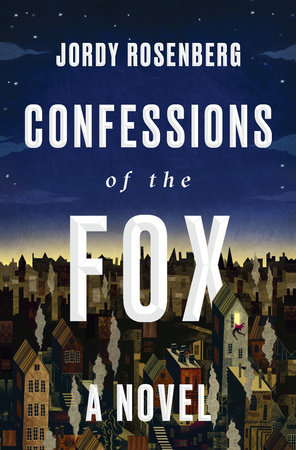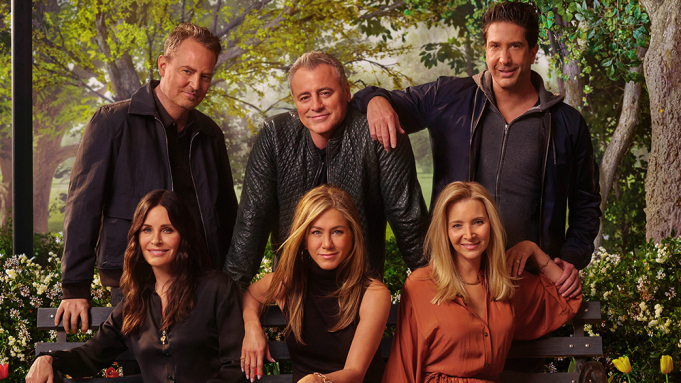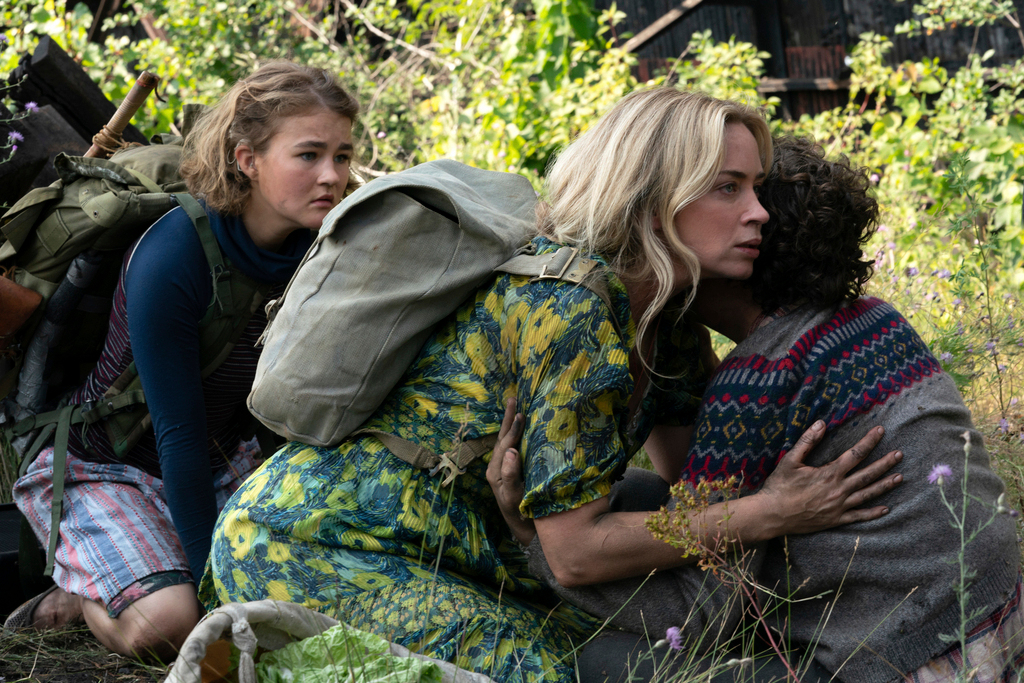 Kiese Laymon
Kiese Laymon
Professor of English and Creative Writing at the University of Mississippi; author of several books, including most recently the memoir Heavy.
The Reckonings by Lacy Johnson (Scribner)
I read, reread and loved Lacy Johnson’s new book, The Reckonings. I was shocked by how Lacy really complicated my understandings of justice, disaster and just art. In a way that hopefully sounds sincere and not sentimental, Lacy made me think, and actually believe, justice was possible, and art must lead the way. The flip is that the book subtextually forced me to reckon with the roles art and artists have in sanctioning suffering, which forced me to reconsider justice as this clearly demarcated destination. I actually think The Reckonings, Eloquent Rage, and No Ashes in The Fire are in this radical three-pronged conversation with each other in 2018 about where we’ve been, and what we do with where we’ve been. They are masterfully conceived projects and generously constructed. At the root of all three are warnings, rightful celebrations, and lush ass uses of language.
 Nafissa Thompson-Spires
Nafissa Thompson-Spires
Writer of fiction, author of the short story collection Heads of the Colored People.
Meet Behind Mars by Renee Simms (Wayne State University Press)
Short story collections — often maligned because they “don’t sell” — have garnered their fair share of attention this year, with several making popular “best of” lists and longlists for major literary awards. And I am totally here for that. Short stories are not just practice runs for the novel, but a respectable and challenging genre all on their own.
I wish, however, that one well-deserving collection were much more visible. I first learned of Renee Simms’ Meet Behind Mars last winter and immediately invited her (and Jamel Brinkley) to join me in proposing a debut short-story writers panel for AWP (an annual writers’ conference). The book’s stories range from darkly humorous to melancholic, all connected by vibrant detail and lush settings (New Orleans, a pawnshop, academia, the 1970s, now). At the conference, Renee gave a reading of the collection’s titular epistolary story that was such a hit with the crowd that I was afraid to read (after her) my own epistolary story, also about the school woes of black children.
It’s not that Meet Behind Mars has remained completely obscure. Tayari Jones has championed it, blurbing the book and mentioning it as a favorite on NPR. And if you won’t take my word for it, please, take Tayari’s. It’s just that the book deserves to be read more widely, savored, and carefully listed as a required text on spring-semester syllabi across the world. It’s short enough to enjoy in one day, but you’ll likely still be thinking about the stories long after you’ve closed the book.
 R.O. Kwon
R.O. Kwon
Author of the novel The Incendiaries.
Bad Friends by Ancco (Drawn & Quarterly)
This year, I’ve been reading a lot more graphic novels and memoirs. I’ve wondered why this is, and I think it could have to do with the fact that, in 2018, I published my first book, a novel. I’ve spent more time out in public, and on social media, than I ever have. In the midst of so much chatter, so many words, it’s possible I’ve been particularly attracted to silence, and to depictions thereof. Graphic books, or so I’ve been finding, are especially well suited to portraying varieties of silence.
One of my favorite graphic-novel reads this year was Ancco’s Bad Friends, translated by Janet Hong. It’s set in South Korea, outside of Seoul, and the adult narrator, Jinju, looks back on a lost childhood friendship. There’s a great deal of violence in this book, and terrible cycles of physical and emotional abuse; in the midst of so much pain, the narrator finds a kindred soul in a close friend, Jung-ae. What follows is a heartbreaking, powerful story about the enchantments and limitations of love. This is a wonderful book.
 Alice Bolin
Alice Bolin
Critic, essayist, journalist, and poet; Visiting Assistant Professor of Creative Nonfiction at the University of Memphis; author of the collection Dead Girls: Essays on Surviving an American Obsession.
The Victorian and the Romantic: A Memoir, a Love Story, and a Friendship Across Time by Nell Stevens (Doubleday)
I admit this is the kind of assignment that gives me anxiety. I have no way of knowing what books you, the reader, may have missed, and I suspect they are probably the same ones I did, considering the determinist paradox of personalized algorithms on shopping and social media websites. That said, the 2018 book I would like to show a little love is the genre-defying memoir The Victorian and the Romantic, by one of my new favorite nonfiction writers, Nell Stevens. The book follows Stevens as she begins a PhD program in English literature in London and falls in deep, long distance love with a former classmate, an American. Paralleling this narrative, Stevens weaves a semi-fictional story of the emotional love affair between Victorian novelist (and Charlotte Brontë’s friend and biographer) Elizabeth Gaskell and American author Charles Eliot Norton. In the UK, Stevens’ book is titled Mrs. Gaskell and I, and I guess we have this alternate title because Americans don’t know who Gaskell is (upside down smiley face emoji). But Stevens inhabits the earlier writer’s interiority with such empathy and audacious sentimentality, the reader can’t help but feel the same connection to Gaskell that Stevens does. The Victorian and the Romantic embodies all the possibility and playfulness I love about the nonfiction genre, using both historical fiction and more traditional memoir as techniques to examine Stevens’ own experience: to comment on her journey through academia and the impossible intimacy scholars seek with their subjects.
 Maya Rao
Maya Rao
Journalist and author of Great American Outpost: Dreamers, Mavericks, and the Making of an Oil Frontier.
Voices From the Rust Belt edited by Anne Trubek (Picador)
Nonfiction chronicles of the heartland too often involve familiar tales of downtrodden factory workers or coastal authors bemoaning Middle Americans’ conservative politics. Yet this anthology offers a fresh, original perspective on the industrial Midwest that includes reflections on a shut-down gay bar in Cincinnati, the bonds of Iraqi immigrants in Cleveland, and the haunting culture of a prison town in West Virginia. One of the best pieces is told from the point of view of a middle-aged social worker in Pittsburgh struggling to help a man name John who “nods like he’s defeated, like jail and everything else have already won.” Another memorable essay explores Henry Ford’s legacy and the “lifeless” suburban communities of the Motor City, concluding that “while Detroit rots, the nostalgic, fauxtopian villages that surround that city are a vision of history some would rather embrace.” The book prominently addresses race, particularly with a witty, acerbic essay that ridicules white newcomers trying to save Detroit. Though uneven at times, Rust Belt offers an authentic portrayal of a region that often makes the national news but too rarely gets captured with such range and nuance.
 Alec Nevala-Lee
Alec Nevala-Lee
Author of Astounding: John W. Campbell, Isaac Asimov, Robert A. Heinlein, L. Ron Hubbard, and the Golden Age of Science Fiction.
The World Only Spins Forward: The Ascent of Angels in America by Isaac Butler and Dan Kois (Bloomsbury)
On November 8, 1992, the second half of Tony Kushner’s epic Angels in America: A Gay Fantasia on National Themes premiered in Los Angeles, leading one critic to describe the play as arriving “at the very pivot of American history, when the Republican ice age it depicts has begun to melt away.” A quarter of a century later, the wheel has come full circle, and Kushner’s masterpiece — featuring a fictionalized version of the lawyer Roy Cohn, whose most successful apprentice now sits in the White House — seems more relevant than ever. The World Only Spins Forward chronicles the play’s birth, reception, and surprising afterlife in the words of those who made it, and it paints a compelling picture of the community of actors, producers, activists, and stage professionals who transformed a playwright’s private vision into a theatrical and cultural event rivaled in our time only by Hamilton. The result is a valuable document of its era, a treasure trove of gossip and creative insight, and a handbook for surviving as an artist in the face of indifference and oppression, and its message urgently deserves to be heard at a moment when what Kushner calls “the Great Work” prepares to begin yet again.
 Terese Marie Mailhot
Terese Marie Mailhot
Essayist, author of Heart Berries: A Memoir, and teacher at Purdue University.
Jonny Appleseed by Joshua Whitehead (Arsenal Pulp Press)
Joshua Whitehead’s Jonny Appleseed is a Two-Spirit bildungsroman. Whitehead gave me lines like, “My home is full of hope and ghosts,” and I knew exactly what he was talking about, and it made me choke up, because I understand the nostalgia about leaving home, or leaving the rez, while desiring white things — and a lifestyle that doesn’t exist, or falls dim compared to what we leave behind unresolved. Whitehead has a good eye. The narrative selects only a few details to give about a space, but they are the exact right details. There’s a lot of grace in the work as well. It’s dealing with heavy content but it’s not playing on anyone’s pathos, it’s simply exacting an experience we have to bear witness to. I like the humor. I like the fragmentation within the structure of the book — it never loses me. Whitehead is in full control and resisting reader expectations in terms of self-pity or shame. I love a voice that isn’t going to tiptoe into the most gutting, honest, or raw moments. I like a narrative that is unashamed, because writing with resistance isn’t easy — it’s actually quite hard to step into the world resisting.

Journalist and author of Amateur: A True Story About What Makes a Man and Man Alive: A True Story of Violence, Forgiveness, and Becoming a Man.
Confessions of the Fox by Jordy Rosenberg (One World)
Jordy Rosenberg’s Confessions of the Fox is queer in every sense of the word. It takes a popular, even dusty, form—the historical novel—and so radically and inventively reimagines it, I found myself, thrillingly, led to question my most basic ideas about time, gender, the stories we tell, and who gets to tell them. Unbelievably, this is a first novel for Rosenberg, who happens to be both trans and an academic like his novel’s protagonist, Dr. Voth, who stumbles on a heretofore undiscovered 1724 text that outlines the swashbuckling adventures of the queer duo Jack Sheppard and Edgeworth Bess. Confessions of the Fox is about authenticity, as Dr. Voth, in footnotes, attempts to uncover the manuscript’s “realness,” but it’s also a story about time’s collapse, and the histories we never get to read, and being a body born of constant reinvention. The book is smart, sexy, affecting, and joyous. Rosenberg has uncovered—no, tapped into—something very deep here. This fictional history of queerness is as “real” as the many stories we sense have never been told but, nevertheless, travel on, year after year, within us. Reading it felt revolutionary.
 Elizabeth Rush
Elizabeth Rush
Author of Rising: Dispatches from the New American Shore and instructor of creative nonfiction at Brown University.
Extra Hidden Life, among the Days by Brenda Hillman (Wesleyan University Press)
This past summer Brenda Hillman and I did an event at one of my favorite indies in the country, Point Reyes Books. The night before I was camped out on the coast. My tent pitched half a mile from the decomposing body of a juvenile blue whale; its spine severed from a propeller strike. I brought Brenda’s latest book to keep me company, Extra Hidden Life, among the Days, and can think of no better traveling companion. Large-hearted and strangely idiosyncratic, this book is a record of a fiercely independent mind at work, in turns song-filled and surprising. Often I think of these lines from “Poem for a National Seashore”: “By the sea the orbweaver…was bolder than the country, / it didn’t see underlying leverage or hedging, / didn’t see…the probably 100 trillion traded on / what is called futures while the mountain lion that // has a small future took her young through the O in / October.” The poems in Extra Hidden Life, among the Days teach us how to navigate this tumultuous time by returning us to the places that matter most––and the alternative logics they propose––where mounting losses demand both elegy and electric political engagement, prayer and praise.
 Michelle Tea
Michelle Tea
Author of 10 books of fiction and nonfiction, including the essay collection Against Memoir: Complaints, Confessions & Criticisms. Curator of Amethyst Editions, a collaboration with the Feminist Press.
Invasions by Calvin Gimpelevich (Instar Books)
Fiction writer Calvin Gimpelevich’s debut short story collection, Invasions, landed at the end of 2018 so it’s got all of 2019 to blow up and blow your minds, as it did mine. Every story in the collections takes you into a landscape rarely if ever explored in fiction. Pieces set in consensus reality depict small but impactful dramas experienced by trans-spectrum characters: a gender non-conforming 22-year-old passes as a teenaged boy in a sexual relationship with a middle-aged woman; a trans man finds temporary community in the liminal space of a trans surgery center; working-class co-workers having DL sex find themselves trapped in a mountaintop blizzard with a straight, rich wedding party. But the stories that really gripped me are the pieces with a Black Mirror-esque bent: the masterful Rent, Don’t Own, which tracks a disabled dyke employed by a gym where workers inhabit your body and exercise on your behalf (it’s about a lot more than that, though); a gay man with supernatural abilities occupies the body of a fascist cop raiding a bathhouse in The Sweetness. The way queerness is centered in this collection is striking, mining the depth and variety of queer experience and fusing them with a brilliant imagination to create realities that feel familiar, inevitable and absolutely new. A serious must-read for 2019, ya’ll!
 Nana Kwame Adjei-Brenyah
Nana Kwame Adjei-Brenyah
A writer of fiction, author of the short story collection Friday Black.
Unearthings by Wendy Chen (Tavern Books)
There is a special pleasure in watching the suddenly epic: small shrimp in a pond becoming great dragon boats, then, as is the case in the incredible poem “They Sail Across a Mirrored Lake,” maybe the net that sweeps down to gather these shrimp becomes a constellation pulled from the sky. Wendy Chen is a master of this sort of alchemy; she makes epic life appear everywhere, especially in the dead or dying.
Her debut collection Unearthings has the feeling of something crafted exactly as it was meant to be. A syllable-level precision makes these pages radiate with a power that hums in your head long after you’ve set the book down. Here is a reminder of a great history that sweeps through our veins. Here is an appreciation for what is remembered, what is lost. Here is an epic lineage rendered into an essence so pure it shines and hurts and saves. Wendy Chen’s Unearthings does something to you as you move through its pages. She is a special poet with a raw and important power that is evidenced early and often in her debut. Read this book. Let it wash over you. You’ll be better for it.
Source: longreads.com | by Dana Snitzky






Leave A Comment
You must be logged in to post a comment.